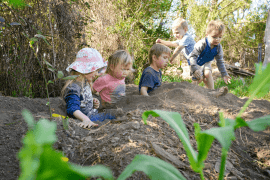Belonging and sharing values are such primal needs. If you find any of these differences or misunderstandings to be very stressful, you deserve to be truly compassionate towards yourself in honouring how hard this can be. An understanding I’ve gained from some of the attachment literature is that there’s something very primal in bonding through shared beliefs, shared values, shared traditions, through feeling a sense of likeness and sameness. It’s not logical, for instance, that granny seems so hurt and personally offended when the mum explains that little Tommy has a gluten allergy and can’t eat granny’s famous apple crumble. Neither the grandmother nor the mother can fully understand just how deeply reliant the grandmother is on both expressing her love and hence gaining her sense of value from providing tasty food. If grandmother can be adaptive and move through these feelings, she’ll likely find ways of cooking that continue to meet all the needs. Yet when a parent chooses to parent very differently from their own parents, it can truly test the bonds of those relationships.
Understanding is love’s other name. If you don’t understand, you can’t love.~ Thich Nhat Hanh, How to Love
Parents, partners, grandparents, friends and relatives are faced with some complex challenges when differences arise that touch on very deeply rooted core beliefs, values and traditions. Feeling at peace with one’s differences generally needs to rest on the security of overall belonging and feeling accepted. For those who don’t have that solid secure sense of belonging and acceptance within their family of origin, tensions around differences can touch on old wounds, especially if differences in that family resulted in harsh criticisms, rejection or character judgments. To feel more secure and hold steady in ourselves in the face of differences and especially judgments often calls on a parent to do some soul searching and emotional growth.
Setting ourselves up for success. The more mindful and realistic about the challenges that differences provide, the more skilfully we can navigate those challenges.
Melissa shares what has helped her: “I have struggled with this issue of hanging out with other parents as my parenting style differs to anyone else I know (in person). I try to carefully manage the situations I put my son in. I especially manage his sleep and my expectations of him depending on his sleep or lack of. When I’ve felt judged and misunderstood, I find it hard to explain myself, so instead I’ve sent family links to articles on my style of parenting. Once, after my sister read them, I sat down with her and discussed some differences, as she uses time outs or threats, so it’s been good to get it all out on the table and agree to differ. I still need to become stronger in all this but these days I am more and more confident in my parenting and don’t care about the looks or stares when I’m perceived to not be parenting properly. I have been known to sit down on the floor in the supermarket with or near my son who is having a big emotional release.”
In Part II, read about when children cry or tantrum around relatives or in public, quotes from parents about what works for them, the challenges of feeling judged and judging others, and whether or not to have those difficult conversations.
Genevieve Simperingham is a Psychosynthesis Counsellor, a certified Aware Parenting Instructor, parent educator, a blogger and public speaker. She’s been parenting with attachment principles from the beginning, her son is 21 and daughter 16. She runs the Peaceful Parent Institute in New Zealand and offers live and online events. Check out her website www.peacefulparent.com.











amazing!